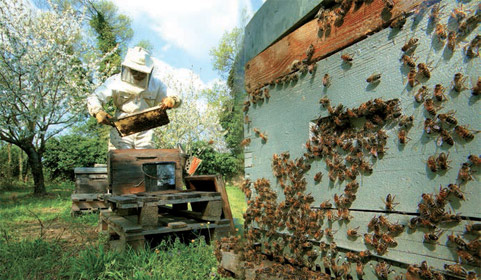Directive 633 regarding unfair trading practices will be amended within two months at the European Commission level based on Romania's model, which involves applying the same commercial markup on all agri-food products regardless of their origin, banning re-billing in retail stores and limiting shelf space, Agriculture Minister Florin Barbu said on Monday.
"You know that we had a draft law. On one hand, we capped the commercial markup for all categories of agri-food products in Romania. Secondly, we introduced legislative changes within the same ordinance, which limits shelf space so that no more than four faces per producer are allowed on the shelf. We no longer want to see products that are only packaged or portioned in Romania and occupy over 70% of retail shelf space. Of course, all these changes are being discussed with the partners we integrated into the Monitoring Committee - Ministry of Agriculture, the Competition Council, retail stores, ANAF [taxation agency] - but, moreover, I am confident that in the next Council of Ministers, the amendment of Directive 633 regarding unfair trading practices will encompass all these measures because Romania is the only EU member state that has taken such actions. It seems that the amendment to Directive 633 will be modeled after Romania, so that the same commercial markup is applied, and no unfair commercial practices are allowed for the same product category. Whether it is processed in the country where it is sold, or if those products are imported, they must have the same markup. Secondly, I had discussions with the Commissioner and proposed that re-billing in retail stores be banned under Directive 633, in order to eliminate the myth that producers sell below the purchase price. No, at the moment, sales are not made below the purchase price. But, later, there are certain contracts that involve re-billing. We are talking about eliminating those rebates and discount practices. The rebate has been removed," Barbu said.
He emphasised that he continues to advocate in the Council of Ministers for modifying these three aspects: the shelf space allocation, the ban on re-billing, and the commercial markup on all agri-food products, whether imported or locally produced.
"I'm sure this directive will be amended. Moreover, regarding the ordinances we issued on capping the commercial markup, correctly aligning them legally with Directive 633, Romania has not faced infringement from the EU. That is why we can do much more legislatively, making many more legislative changes to completely eliminate these unfair commercial practices in Romania. I believe that in a maximum of two months, Directive 633 will be amended at the European Commission level," the Agriculture minister concluded.
Asked whether Romania could currently rely only on products made domestically or if it still needs imports, Florin Barbu replied, "We need to discuss what products we are talking about. If we are talking about citrus fruits, Romania cannot produce citrus. If we are talking about agri-food products, basic foods - flour, corn, dairy, poultry meat, and other products - Romania has independence."
"We are developing and have a deficit in pork production. Through the farms we've integrated with farmers, starting this year, we will produce another 1.5 million piglets. Of course, these piglets will go to fattening farms in Romania. We will produce around 5 million pigs starting this year and next year. At the same time, the Ministry of Agriculture has two important programmes, one for breeding farms and one for pig farming, to achieve self-sufficiency in the next three years, with 8.7 million pigs," the minister assured.
Agriculture Minister Florin Barbu participated on Monday in a press conference organised by the Alliance for Agriculture and Cooperation, marking five years of activity.
































Comentează